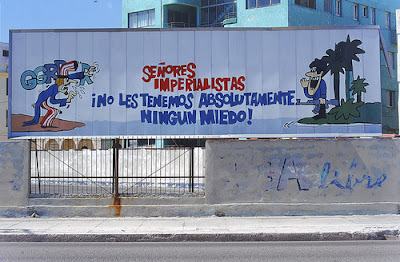 |
| Reference: AFP Poster referred from Alternet |
Two former Argentine dictators were handed heavy prison sentences for overseeing the systematic kidnapping of babies from leftist activists killed during the 1976-1983 dictatorship.
A common tactic of sibling warfare is to tell your brother he's adopted. It's funny and harmless because it is generally so far fetched, but for hundreds of Argentines that suggestion is no joke
References:From 1976 to 1983 an estimated 500 babies were stolen and secretly integrated and adopted into families of right-wing military members and their allies as part of a sweeping program that brutally targeted left-wing militants and sympathizers during the military junta’s seven-year rule.
Bringing, perhaps, a fragment of closure to that era, a former Argentine dictator, Jorge Videla, was convicted yesterday for his role in the program. Mr. Videla, who headed the coup that brought the military to power in 1976, was sentenced to 50 years in prison.
The conviction and official recognition of these crimes marks a historical moment for Argentina, whose public has long known of or suspected these practices and which continues to search for answers.
The Christian Science Monitor, "Former Argentine dictator Jorge Videla convicted of systemic theft of babies."
AFP, "Tough sentences in Argentina stolen babies case"


















